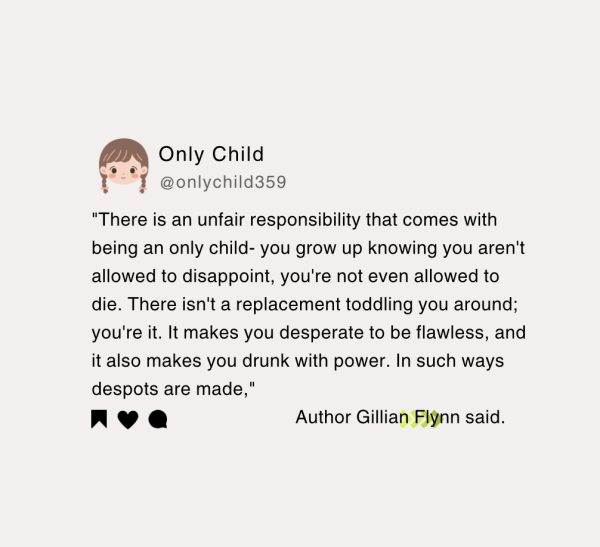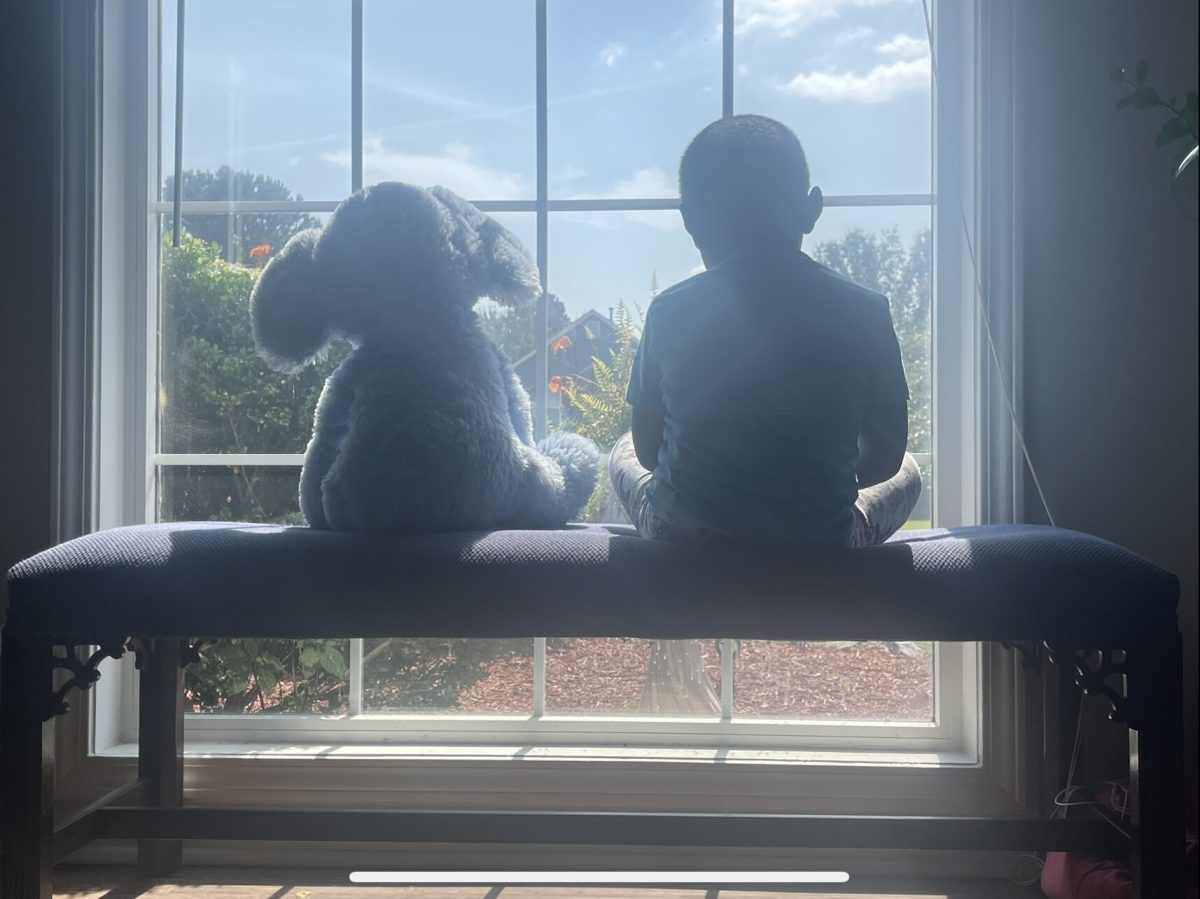The oldest, the youngest and the middle: children without siblings grow up without the shared companionship and bond that multiple siblings provide. This absence of constant camaraderie and built-in playmates can lead to a distinct sense of solitude that shapes one’s upbringing and influences one’s social and emotional development.
Countless people romanticize the lives of only children as a tropical paradise: no siblings stealing leftovers from the fridge, no petty arguments over chores and no competition for parent’s attention. However, beneath the idealistic life lies a complex reality far from the picture-perfect paradise. Life as an only child remains a lonelier journey than what meets the eye.
Countless only children live an introverted lifestyle, causing social challenges. Family cocktail parties, opening gifts on Christmas and even birthday parties may feel like a daunting task for only children. Because no age-mate peers reside in the home, only children may obtain fewer opportunities to engage in casual, everyday social interactions that other children experience. In the early teenage years, only children will seem exceedingly mature when speaking with adults, but awkward when conversing with their peers.
“I feel as though I have missed out on what life is like growing up with neither an older sibling showing me the way nor being able to show a younger sibling the way. It can get lonely at times not having someone to talk to that’s in your house and can actually understand what you’re going through,” senior Katerine Jenkins said.
Setting tremendously high standards for themselves, only children suffer from severe cases of perfectionism which display high motivation and success, however, their high expectations can cause stress in them and in others. They can also become strict and impatient with people who do not meet their standards and dislike unforeseen events.

A researcher at Jinan University, Shu Cheng, conducted an experiment investigating the associations between only children and anxiety and depressive symptoms in college students. A total of 645 students used The self-rating anxiety scale and self-rating depression scale to reflect their psychological states. The overwhelming majority of only children—a whopping 67%— reported feeling symptoms of anxiety compared to the 33% of children with siblings who reported symptoms of anxiety. Following the same pattern, 61% of only children reported feeling symptoms of depression with only 39% of children with siblings who reported feeling these symptoms.
Opponents will argue that life without siblings brings peace and advantages. Indeed, parents of only children can devote all of their money, time and resources to their one child. While the advantages seem luxurious, the long-term reality for only children remains a lonely oasis. They open Christmas gifts alone, they play with toys alone and they miss out on the opportunity to make lasting memories with a sibling.
“I have an older brother and even though we fight sometimes, I am really grateful to have him. He does give good advice sometimes and will occasionally buy me stuff, so that’s a bonus. I could not imagine being an only child because it just seemed lonely and boring. I’ll always have fun memories with my brother, and that’s something that only children will unfortunately never be able to create,” senior Roselyn Morris said.











